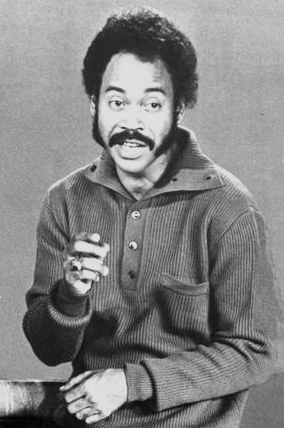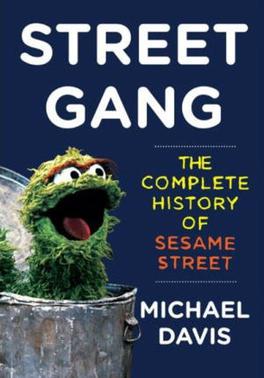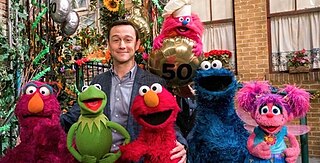
The Muppets are an American ensemble cast of puppet characters known for an absurdist, surrealist, burlesque, and self-referential style of variety-sketch comedy. Created by Jim Henson in 1955, they are the focus of a media franchise that encompasses television, film, music, and other media associated with the characters. Originally owned by the Jim Henson Company for nearly five decades, the franchise was purchased by the Walt Disney Company in 2004.

Sesame Street is an American educational children's television series that combines live-action, sketch comedy, animation and puppetry. It is produced by Sesame Workshop and was created by Joan Ganz Cooney and Lloyd Morrisett. It is known for its images communicated through the use of Jim Henson's Muppets, and includes short films, with humor and cultural references. It premiered on November 10, 1969, to positive reviews, some controversy, and high viewership. It has aired on the United States national public television provider PBS since its debut, with its first run moving to premium channel HBO on January 16, 2016, then its sister streaming service Max in 2020.

Sesame Workshop, Inc. (SW), originally known as the Children's Television Workshop, Inc. (CTW), is an American nonprofit organization that has been responsible for the production of several educational children's programs—including its first and best-known, Sesame Street—that have been televised internationally. Television producer Joan Ganz Cooney and foundation executive Lloyd Morrisett developed the idea to form an organization to produce Sesame Street, a television series which would help children, especially those from low-income families, prepare for school. They spent two years, from 1966 to 1968, researching, developing, and raising money for the new series. Cooney was named as the Workshop's first executive director, which was termed "one of the most important television developments of the decade."

Oscar the Grouch is a Muppet character created by Jim Henson and Jon Stone for the PBS/HBO children's television program Sesame Street. He has a green body, no visible nose, and lives in a trash can. Oscar's favorite thing is trash, as evidenced by the song "I Love Trash", with a running theme being his collection of seemingly useless items. Although the term "Grouch" aptly describes Oscar's misanthropic interaction with the other characters, it also refers to his species. The character was originally performed by Caroll Spinney from the show's first episode until Spinney's retirement in 2018. Eric Jacobson began understudying for the character in 2015, and officially took on the full role after Spinney's retirement in 2018.

The preschool educational television program Sesame Street was first aired on public television stations on November 10, 1969, and reached its 54th season in 2023. The history of Sesame Street has reflected changing attitudes to developmental psychology, early childhood education, and cultural diversity. Featuring Jim Henson's Muppets, animation, live shorts, humor and celebrity appearances, it was the first television program of its kind to base its content and production values on laboratory and formative research, and the first to include a curriculum "detailed or stated in terms of measurable outcomes". Initial responses to the show included adulatory reviews, some controversy and high ratings. By its 40th anniversary in 2009, Sesame Street was broadcast in over 120 countries, and 20 independent international versions had been produced. It has won eleven Grammys and over 150 Emmys in its history—more than any other children's show.

Matthew Thomas Robinson Jr. was an American actor, writer and television producer. Robinson was the first actor to portray the character of Gordon Robinson on the PBS children's TV program Sesame Street. When Sesame Street began in 1969, not only did Robinson play Gordon, but he also provided the voice of the puppet Roosevelt Franklin and was one of the show's producers. He left the show in 1972. In later years, when producers needed a last name for the Gordon character, then played by Hal Miller and later Roscoe Orman, they used Matt's last name.
Loretta Mae Long is an American actress. She played the character of Susan Robinson on Sesame Street from 1969 to 2017. Long is also a consultant and public speaker on issues of multiculturalism and education.
The Robinson family is a fictional family in the children's television series Sesame Street. The family consists of high school science teacher Gordon and his wife, Susan, a nurse. Later, the family expands to include their adopted son, Miles, as well as Gordon's sister, Olivia, his father, Mr. Robinson, and a brother. As African Americans, the family was created as leads for the show, originally targeted to underprivileged inner city children. Even as human roles were slowly reduced over the years, their characters maintained a constant presence.
Sesame Street international co-productions are adaptations of the American educational children's television series Sesame Street but tailored to the countries in which they are produced. Shortly after the debut of Sesame Street in the United States in 1969, television producers, teachers, and officials of several countries approached the show's producers and the executives of the Children's Television Workshop (CTW), renamed Sesame Workshop (SW) in 2000, about the possibility of airing international versions of Sesame Street. Creator Joan Ganz Cooney hired former CBS executive Michael Dann to field offers to produce versions of the show in other countries.

"Snuffy's Parents Get a Divorce" is the name of an episode on the children's television program Sesame Street. Produced in 1992, it never aired because tests showed several unintended negative effects. Sesame Street has had a history of presenting difficult topics as part of its affective curriculum goals, including death, marriage, childbirth, and disaster. Extensive research was done before these episodes were written and produced, to ascertain their focus, and after they aired, to analyze the effect they had on viewers, and that was the case for "Snuffy's Parents Get a Divorce." The show's producers had expressed a desire to produce the episode as early as 1989, and they were convinced that it was a topic they should address after the US Census Bureau reported that 40% of American children had experienced divorce.
A wide variety of characters have appeared on the American children's television series Sesame Street. Many of the characters are Muppets, which are puppets made in Jim Henson's distinctive puppet-creation style. Most of the non-Muppet characters are human characters, but there are many characters that are animated.

Street Gang: The Complete History of Sesame Street is a non-fiction book chronicling the history of the children's television program Sesame Street. Street Gang is journalist and writer Michael Davis's first book, published by Viking Press in 2008. On bookshelves in time for the show's 40th anniversary in 2009, the book developed out of a TV Guide article Davis wrote to commemorate the show's 35th anniversary in 2004. Davis spent five years researching and writing the book, and conducted hundreds of interviews with the show's creators, cast, and crew.

Children and Television: Lessons from Sesame Street (1974) is a non-fiction book written by Gerald S. Lesser, in which he describes the production of Sesame Street, and the formation and pedagogical philosophy of the Children's Television Workshop. Lesser was a professor at Harvard University, studying how social class and ethnicity interacted with school achievement and was one of the first academics in the US who researched how watching television affected children and their development. He was initially skeptical about the potential of using television as a teaching tool, but he was eventually named as the advisory board chairman of the Children's Television Workshop (CTW), the organization created to oversee the production and research of Sesame Street, and was the show's first educational director. Lesser wrote the book early in Sesame Street's history, to evaluate the show's effectiveness, to explain what its writers, researchers, and producers were attempting to do, and to respond to criticism of Sesame Street.
Sesame Street is an American children's television series that is known for its use of format and structure to convey educational concepts to its preschool audience, and to help them prepare for school. It utilizes the conventions of television such as music, humor, sustained action, and a strong visual style, and combines Jim Henson's Muppets, animation, short films, humor, and cultural references. The show, which premiered in 1969, was the first to base its contents, format, and production values on laboratory and formative research. According to researchers, it was also the first to include a curriculum "detailed or stated in terms of measurable outcomes".
The children's television show Sesame Street, which premiered on public broadcasting television stations in 1969, was the first show of its kind that utilized a detailed and comprehensive educational curriculum, with specific educational goals, in its content. Its goals were garnered from in-house formative research and independent summative evaluations, and its first curriculum was created in a series of five seminars in 1968.
The children's television program Sesame Street premiered in 1969 to high ratings, positive reviews, and some controversy, which have continued during its history. Even though the show aired on only 67% of American televisions at the time of its premiere, it earned a 3.3 Nielsen rating, or 1.9 million households. By its tenth anniversary in 1979, 9 million American children under the age of six were watching Sesame Street daily. Its ratings declined in the 1990s, due to societal changes. A survey conducted in 1996 found that by the age of three, 95% of all American children had watched it. By its fortieth anniversary in 2009, it was ranked the fifteenth most popular children's show.

Sesame Street's 50th Anniversary Celebration is a 2019 musical television special to celebrate the 50th anniversary of Sesame Street. Hosted by Joseph Gordon-Levitt, the special aired on November 9, 2019, on HBO, followed by a November 17 airing on PBS. It stars the cast and Muppets of Sesame Street, including Kermit the Frog, from the past and present. Many retired cast members and characters reunited on the street for the first time in years since their last appearances. This is the final Sesame Street special to feature long-time Muppet performer Caroll Spinney, who performed Big Bird and Oscar the Grouch for 50 years as well as the cast members Emilio Delgado and Bob McGrath, who played Luis and Bob, respectively, for 45 years.

Carolyn Wilcox, known as Caroly Wilcox, was an American theatre professional, best known for her work with the Muppets, on television programs including Sesame Street,The Muppet Show, and Fraggle Rock, and in The Muppet Movie, The Muppets Take Manhattan, and other films.










